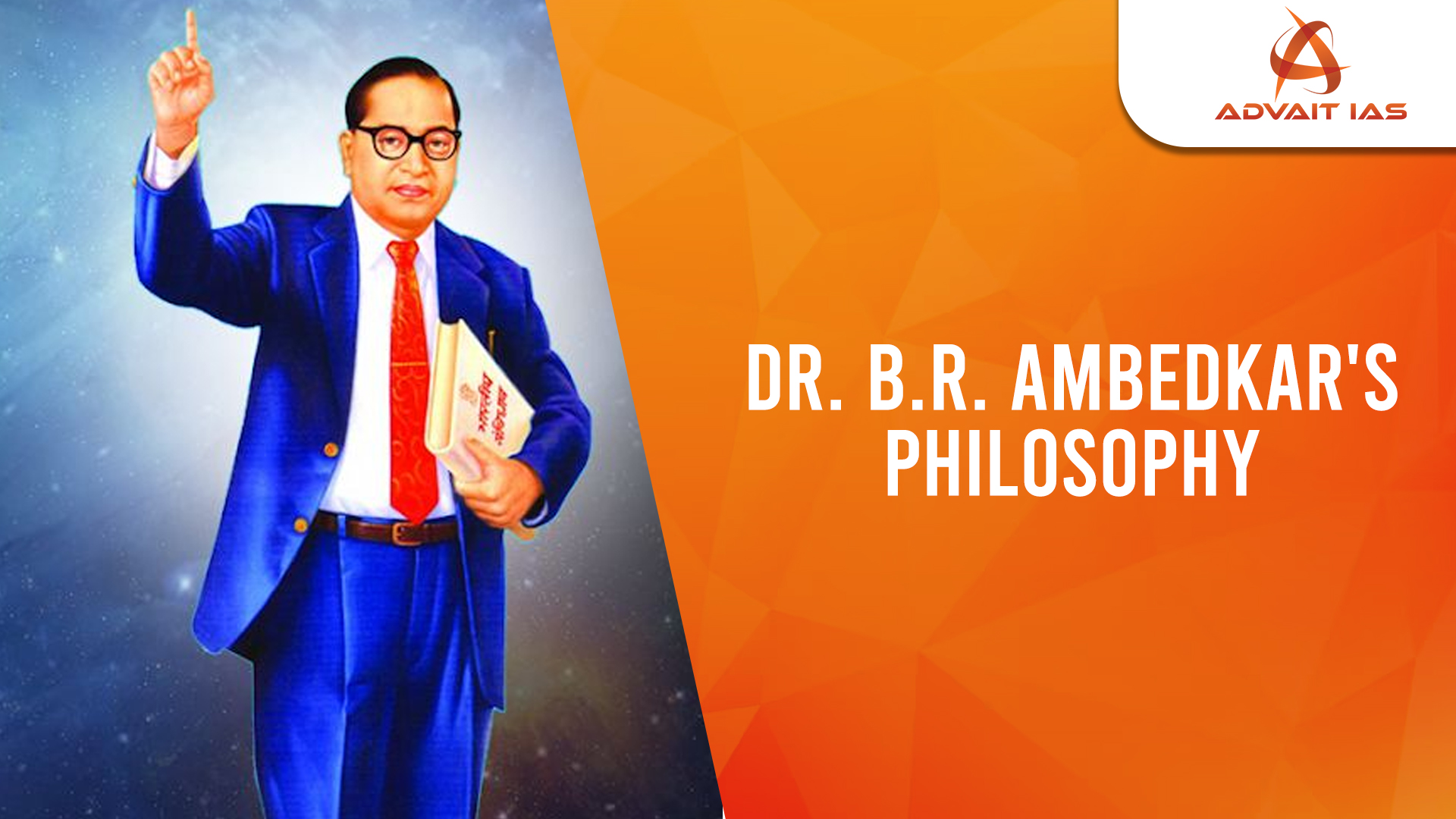Dr. Bhimrao Ramji Ambedkar’s (1891–1956) work remains pivotal in addressing caste, gender inequality, constitutional democracy, and social empowerment in contemporary India.
Philosophical Perspectives of Dr. B.R. Ambedkar
- Pragmatism:
- Influenced by John Dewey (American philosopher).
- Emphasized practical solutions to real-world issues: caste system, social injustice, economic inequality.
- Action-oriented approach over theoretical frameworks.
- Critique of the Caste System:
- Denounced caste as oppressive and unjust.
- Advocated for a rational, egalitarian society.
- Navayana Buddhism: Reinterpreted Buddhism focusing on social equality and ethical living (e.g., The Buddha and His Dhamma).
- The Annihilation of Caste (1936): Argued caste is a division of laborers, perpetuating inequality.
- Legal and Constitutional Philosophy:
- Chief Architect of the Indian Constitution.
- Inspired by the French Revolution: liberty, equality, fraternity.
- Advocated for constitutional morality and rule of law.
- Champion of fundamental rights, affirmative action, and fraternity to bridge caste divides.
- Political Philosophy:
- Democracy as a way of life, not just a system.
- Emphasis on liberty, equality, and fraternity beyond political frameworks.
- Economic Philosophy:
- Rejected both unregulated capitalism and extreme socialism.
- Advocated for state-led economic planning.
- Focused on land reforms, labor rights, and economic empowerment of marginalized communities.
- Gender Justice:
- Strong advocate for gender equality.
- Drafted the Hindu Code Bill for reforms in marriage, inheritance, and divorce laws.
- Promoted women’s education and empowerment for societal transformation.
- Views on Gandhism:
- Critic of Gandhism’s caste reforms; emphasized legal abolition of caste.
- Despite differences, both shared goals of social justice and nation-building.
- Navayana Buddhism (1956):
- Reinterpretation of Buddhism emphasizing social justice over spiritual doctrines.
- Rejected Four Noble Truths, karma, rebirth, nirvana, monasticism.
- Dhammachakra Pravartan Day (14th October) marks mass Dalit conversions to Navayana Buddhism.
Relevance of Ambedkar’s Philosophy in the Contemporary World
- Social Justice:
- Reservation policies for SCs, STs, OBCs inspired by his vision.
- Ongoing movements against caste-based violence and discrimination reflect his advocacy.
- Constitutional Democracy:
- In the face of majoritarianism, attacks on minorities, and threats to civil liberties, his call for constitutional morality remains critical.
- Education for Empowerment:
- His slogan: “Educate, Agitate, Organize.”
- Supports policies like scholarships, skill development, and free education for marginalized communities.
- Gender Equality:
- Advocacy for women’s rights is vital in current debates on equal pay, personal law reforms, and gender justice.
- Economic Equality & Labor Rights:
- Emphasis on state-led industrialization, land reforms, and labor rights.
- His ideas remain relevant amid challenges like unemployment, wealth inequality, and labor exploitation.
Dr. B.R. Ambedkar’s philosophy remains a cornerstone for addressing social justice, caste abolition, constitutional democracy, and gender equality. Ambedkar’s ideas serve as a blueprint for an inclusive, just, and equitable society.






